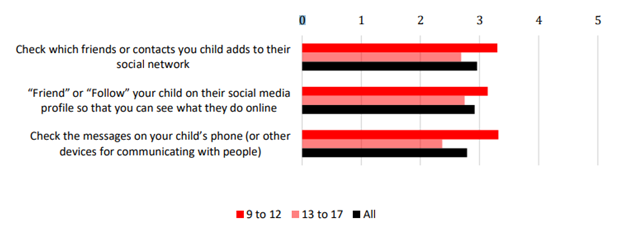The internet can be an excellent tool for children, but online access comes with daunting risks.
Since the internet has turned out to be a new medium of communication, many people rely heavily on its pros and neglect its cons. Online access for children is no doubt fruitful, but is it useful enough that you will compromise on your online privacy for that?
Parents are often concerned about what their kids do on the internet, but little do they know that their privacy and security is at stake whenever the little one uses the internet.
Parents should be well aware of their children’s activities on the web; they should know what their kids are talking to and which apps they use on a smartphone. Parents can use tools to protect them and watch their online activity.
Children Online Privacy Protect Act
COPPA (Children Online Privacy Protect Act) is a law to protect the privacy of kids aged less than 13. According to this act, websites must require parental or guardian consent before asking any personal information to a kid under 13 years of age.
This act was passed in 1998 in US Congress which came in effect in April 2000. This law was to address the rapid growth of online marketing back in the 1990s which mainly targeted children. There were numerous websites which were collecting personal information from kids without parents consent.
Any website that intends to collect information from children must comply with laws of COPPA. This act affected many social networking sites including; Friendster, Facebook, Xanga, MySpace or other social networks.
How to Protect Your Children’s Online Privacy?
Online protection tools like best vpn services give you the liberty to surf safely and protect you from internet predators. Many ISPs (Internet Service Providers) provide parent-control options, these include;
• Softwares that help blocks malicious websites.
• Software that limits sharing your personal information online.
• Programs that help monitor and track your online activity.
Online privacy is the top barrier that limits parents to use the internet. Out of 89% of parents that go online daily, 11% said that they have privacy concern leading them to restrict internet use. However, low frequent internet users, were more concerned about their security online, almost 17% say this.
Digital Privacy Tips for Online Activities
It is better to take preventive measures than doing a hectic monitoring session every time your child goes online.
Following are some basic guidelines you can share with your kid for safe online use.
• Never post pictures online without the consent of an elderly.
• Never reveal personal information like phone numbers, school name, location or home address.
• Never agree to meet in person with any stranger online without parents approval or/and supervision.
• Always tell your parents about any harmful or scary conversation that took place online.
Parents know how to monitor their kids, but they are often clueless when it comes to the online world. Following guidelines will help you supervise your child better.
• Take your child seriously when he/she complains about an uncomfortable online activity.
• Find out what online protection is offered in his/her school or anywhere where he/she uses a computer with internet access.
• Check whether your credit card or phone bill have an unfamiliar change.
• Bookmark your child’s favorite websites to refrain him from navigating the internet for nothing.
• Keep the computer in a common area where you can monitor the time spent online.
Keep a close watch on how much time does your child spent on your smartphone, or his tablet.
Lastly, and most importantly,
• Spend time with your kid online and teach what appropriate online behavior is.

How Should Parents Check Social Media of Teenagers?
It is difficult for parents to keep an eye on almost every activity of their kid online. Then, they also feel that they should give some breathing space to their kid, so how to manage all this?
According to livestone parenting digital survey, on average parents check their child friends or messages on social media occasionally and sometimes also take a good look on whom they are friends with or following.

Source: Limestone parenting digital survey
• Parents of younger children are more likely to check their kid’s social media. It looks like parents to take responsibility when they are aware that their kid shouldn’t be using social sites as they are for 13+. Parents of underage kids aged between 9-12 year old are more likely to check messages and/or friends to help keep their children stay away from any danger.
• Mothers were found more likely to engage than father on motoring social media on underage kids.
• As children grow up, the parental-monitoring becomes less frequent. Although, they hardly ever monitor it.
The study above indicates that parents are curious about their kid’s activity on the web. Though it is a great sign don’t ignore the safety measures which are needed to take before your child goes online.